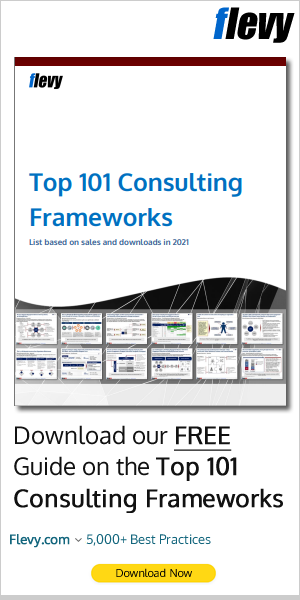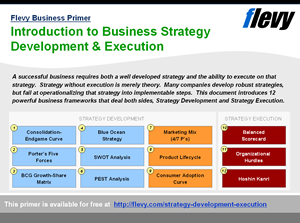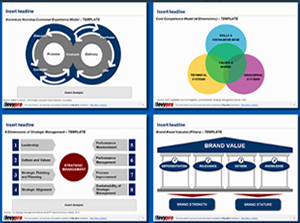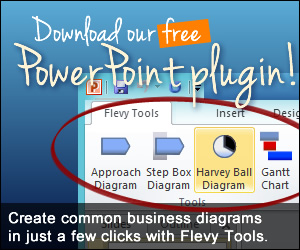Editor's Note: Take a look at our featured best practice, 5 Dimensions of Employee Engagement (24-slide PowerPoint presentation). Businesses typically focus on customers. However, with rapid changes and intense competition they have come to realize that employees make or break an enterprise, create brand impression, and represent the organization's culture & values. Exceptional service has been realized as a key source [read more]
How to Celebrate Employee Loyalty
Also, if you are interested in becoming an expert on Human Resource Management (HRM), take a look at Flevy's Human Resource Management (HRM) Frameworks offering here. This is a curated collection of best practice frameworks based on the thought leadership of leading consulting firms, academics, and recognized subject matter experts. By learning and applying these concepts, you can you stay ahead of the curve. Full details here.
* * * *

Go Big for Employee Anniversaries
Employee anniversaries are some of the most important milestones workers experience — and they occur every year. Around the anniversary of their first day at work, employees tend to reflect on their experiences in their current role. They will contemplate their satisfaction with their responsibilities, pay and treatment, and they might consider the strength of the relationships they have formed in the workplace. If workers find any aspect of their employment wanting, they will begin the process of looking for a new job.
Thus, it is imperative that organizations go above and beyond to improve employee satisfaction during this time. Leaders can use a tool like an employee recognition platform from Workhuman to track employee anniversaries and send notifications when an anniversary is approaching. Research shows that a worker’s first anniversary is incredibly important in determining whether the employee will remain with the organization for long or leave in the coming months. However, leaders should not neglect more established workers who have more years of experience with the company.
At smaller and medium-sized businesses, employee anniversaries should be celebrated by the entire organization. The employee’s favorite treats should be on offer, and work should be put on pause to honor the employee’s contributions during the past year. At larger corporations, it might be more feasible for employees to celebrate their anniversaries with their teams, with an offsite lunch or recreation enjoyed by the honoree.
Though it might be tempting to celebrate employee anniversaries on a monthly basis, grouping employees together in this way does little to inspire loyalty and engagement. Leaders need to respect their workers as individuals, which means marking anniversaries as special and unique events.
Offer Annual Rewards for Most Loyal Workers
Most organizations have formal recognition programs which honor certain employees for certain contributions. For example, a worker might win an award for providing the highest quality of customer service at the company, and another worker might be awarded “Most Improved” for demonstrating development in an important workplace skill. In many cases, these awards are handed out during a ceremony that provides workers a space and time wholly dedicated to recognition and praise.

- Running the Marathon
- Forever With Us
- The Iron Pillar
- The Collared Diamond
- Outstanding Service Record
- Unmatched Dedication
- The Ultraman Employee
- Salute to Loyalty
- Beyond Grateful
Alongside the recognition, an organization’s most loyal employees should earn prizes during the awards ceremony. They might be honored with extra PTO to enjoy a longer vacation before returning to work, or they might gain traditional tokens of long, exceptional service like a gold watch or a monogrammed briefcase. These gifts will help workers remember that their company values them and will help them recommit to their employer year after year.
Increase Valuable Perks and Incentives
What employees want, more than fun work lunches or an office ping-pong table, is better compensation. The number-one reason employees cited for quitting their jobs during the Great Resignation is that their pay was too low for the work they put in. The fact is that most workers recognize the value of their knowledge and skills, and to cultivate loyalty, organizations need to respect that value and compensate workers accordingly.
Employee loyalty should be rewarded with consistent pay increases, which employees can expect without demanding raises from their managers. Additionally, loyalty should provide employees with more workplace perks, like access to career development opportunities that train them for advances through the corporate structure. Other inexpensive but impactful incentives include gym memberships, additional PTO and stock options, all of which improve a worker’s lifestyle in meaningful ways.
Loyalty is only rare in the modern workplace because businesses have not prioritized it as a feature of the workforce. Now that workers have more options in their employment, organizations need to find ways of building loyalty in their staffs, which involves celebrating employees who remain loyal.

Want to Achieve Excellence in Human Resource Management (HRM)?
Gain the knowledge and develop the expertise to become an expert in Human Resource Management (HRM). Our frameworks are based on the thought leadership of leading consulting firms, academics, and recognized subject matter experts. Click here for full details.
The purpose of Human Resources (HR) is to ensure our organization achieves success through our people. Without the right people in place—at all levels of the organization—we will never be able to execute our Strategy effectively.
This begs the question: Does your organization view HR as a support function or a strategic one? Research shows leading organizations leverage HR as a strategic function, one that both supports and drives the organization's Strategy. In fact, having strong HRM capabilities is a source of Competitive Advantage.
This has never been more true than right now in the Digital Age, as organizations must compete for specialized talent to drive forward their Digital Transformation Strategies. Beyond just hiring and selection, HR also plays the critical role in retaining talent—by keeping people engaged, motivated, and happy.
Learn about our Human Resource Management (HRM) Best Practice Frameworks here.
Readers of This Article Are Interested in These Resources

|
|
22-page PDF document
|
|
4-page PDF document
| |||
About Shane Avron
Shane Avron is a freelance writer, specializing in business, general management, enterprise software, and digital technologies. In addition to Flevy, Shane's articles have appeared in Huffington Post, Forbes Magazine, among other business journals.
Top 6 Recommended Documents on Employee Retention
» View more resources Employee Retention here.
» View the Top 100 Best Practices on Flevy.













